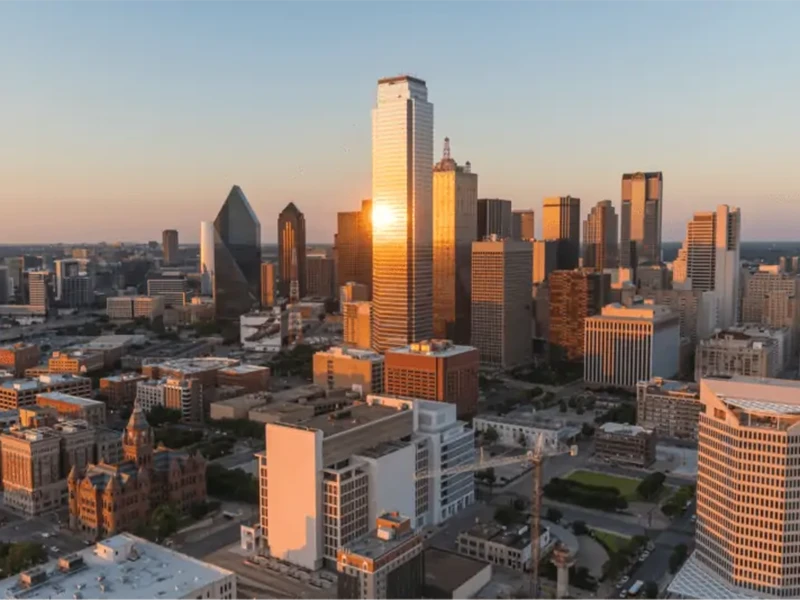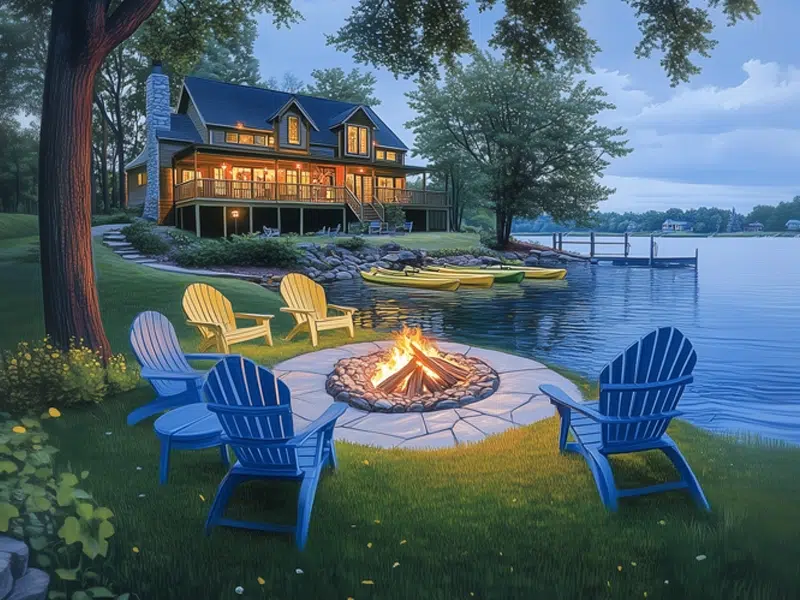Updated Texas Airbnb Laws and Regulations – What Texas Hosts Need to Know When Renting in The Lone Star State
Many municipalities in Texas have expanded upon stringent Airbnb laws and regulations recently. From updating safety procedures, permit processes, and insurance policy requirements, Texas is making strides to support short-term rental hosts. In towns or cities where the laws are still limiting, hosts should continue staying up to date with current laws and regulations.
If you have questions about short-term rentals in Texas, contact Proper Insurance. Our agents are experts in the vacation rental industry in your area. Call 888-631-6680 today.

Alpine, Texas
Updates Airbnb Short-Term Rental Laws and Regulations
New Airbnb laws and regulations in Alpine were introduced on January 19th, 2021. After a final review in February, hosts must comply with several operational standards and submit a special use permit application with a corresponding fee of $350 (cash, check, or money order payable to the City of Alpine). The full ordinance can be found on the City of Alpine website.
Hosts also must provide the following details to the city when submitting their permit application. City of Alpine Short-Term Rental Special Use Permit Application Checklist:
- A completed STR Registration Form.
- A copy of a property insurance summary that states STR coverage is included and/or a complete insurance waiver. If the operator chooses to opt-out of property insurance a General Release of Liability MUST be signed by the operator.
- A letter describing the proposed STR use, detailing whether the proposed STR will, or will not cause substantial harm to the value, use, or enjoyment of the other properties in the neighborhood. Also describe how the proposed STR will add to the value, use, or enjoyment of the other properties in the neighborhood.
- A sketch floor plan of the dwelling with a dimensional room layout. Please identify sleeping areas, evacuation route(s), and location of fire extinguishers (note this!).
- Proof of STR property ownership such as property tax documents, deeds, or a copy of the title (all owners must sign the application).
Most cities are concerned with the negative effects of short-term rentals on their communities (i.e. quiet neighborhood homes turned into de facto hotels). Alpine requires hosts to describe how their short-term rental will better the community, such as an influx in business to local shops and restaurants.
Hosts must also provide the following details to guests upon booking:
- The 24-hour contact information of the STR owner or local representative
- Neighborhood info such as parking and noise restrictions, trash collection schedules, etc.
- Emergency and non-emergency telephone numbers for police and fire departments
- Instructions for obtaining severe weather, natural or man-made disaster alerts
Arlington, Texas Vacation Rental Laws
Updates Insurance Requirements for Airbnb Short-term Rentals
The short-term rental regulations and Airbnb laws in Arlington, TX, mirror various other cities that have accepted and adopted basic regulations. The regulations include:
- Occupancy Restrictions: 2 per bedroom + 2, limited to 12
- Parking: limited to the number of available off-street spaces
- Noise & Quiet Hours: No amplified sound or outside congregation between 10 pm and 9 am
- Trash: Trash will be placed on the curb after 7 pm the evening before the scheduled pickup
- Other: Premises are not to be used as a Banquet Hall. Physical conversion of premises (to add bedrooms) is prohibited.
Arlington also requires all valid permits to be obtained before hosting, requires all zoning regulations to be followed, and enforces a 30-day maximum occupancy limit.
Arlington has opted to follow the move of many communities in requiring licensing with the city and require a minimum of $1 million in liability insurance. However, they fail to mention the type of liability insurance that should be carried. This could create a problem among short-term rental operators, as they may find that having the wrong type of liability and property insurance could cost them should the time come to use their coverage.
Commercial Activity Requires Commercial Insurance
Short-term rentals are generally viewed as a commercial activity and require commercial liability insurance. Personal liability, which many homeowners carry, is not designed to handle commercial exposure, and may decline a claim if they find that the liability issue is related to short-term renting.
Operators of short-term rentals need to check with their liability coverage to ensure that they are appropriately covered to avoid the unfortunate and costly mistake of having the wrong insurance. City officials likewise should evaluate their rules to ensure that compliance does not lead to mistakes, leaving their law-abiding citizens incorrectly covered. Many resources exist for short-term rental owners to research in determining how best to insure their properties and their business activity while maintaining compliance with their local municipalities. Regulations can be rewarding for all parties involved but should be written to not endanger one party or another.
Austin, Texas Short-Term Rental Laws
Understand Austin’s Airbnb Laws & STR Regulations
As of April 1, 2025, the Austin City Council requires short-term rental (STR) platforms to collect and remit Hotel Occupancy Taxes (HOT) on behalf of operators. Further regulatory changes, effective October 1, 2025, will shift STR governance to Title 4 of the City Code, focusing on business regulations and permit requirements. STRs will continue to be permitted in all residential areas, provided operators hold valid licenses.
- Licensing: All short-term rental properties in Austin are required to obtain a valid operating license from the City of Austin. These licenses must be renewed annually. Failure to secure a license can result in fines or legal action. To apply for or renew a license, property owners must provide documentation such as proof of ownership, a Certificate of Occupancy or certified inspection, and the appropriate fee payment. More details can be found on the city’s Code Compliance Guide to Short-Term Rentals.
- Types of STRs: The regulations classify STRs into three categories, and each type has specific zoning and occupancy limits:
- Type 1: Owner-occupied or associated premises, such as a single room in a home.
- Type 2: Non-owner-occupied properties, typically rented out entirely as vacation homes.
- Type 3: STRs in multi-family buildings or complexes.
- Occupancy Limits: Austin limits the number of guests allowed per STR property. Generally, no more than six unrelated adults may stay in a single-family property at one time. Additional regulations may apply to multi-family STRs or properties exceeding certain square footage.
- Noise, Trash & Safety Compliance: To ensure neighborhood harmony, STR owners must comply with local noise ordinances and provide adequate trash disposal. Additionally, properties must meet safety standards such as having working smoke detectors, carbon monoxide detectors, and fire extinguishers. For more information on safety and compliance, refer to Austin’s STR compliance guidelines.
- Prohibited Uses & Penalties: STRs cannot be used for commercial events or large parties. The city employs active enforcement measures, including surprise inspections, complaint investigations, and penalty assessments for violations. Repeat offenders may face license revocation and court-ordered penalties.
- Taxes: STR operators are required to collect and remit both the Texas state hotel occupancy tax and the City of Austin’s hotel occupancy tax. Failure to comply with tax obligations can result in penalties and interest.
- More Information: For more extensive information, review Austin’s official regulations on their Code of Ordinances regarding short-term rental laws.
Dallas, Texas Airbnb Laws
Understand Vacation Rental Rules in Dallas
Dallas has established detailed regulations governing short-term rentals to ensure residential integrity, public safety, and compliance with city laws. These guidelines address licensing requirements, operational restrictions, and tax obligations for STR operators.
- Licensing: All short-term rental operators in Dallas must obtain a city-issued registration for their property. The registration must be renewed annually, and the property must comply with applicable zoning laws and safety standards.
- Zoning Laws: STRs in Dallas are categorized by zoning laws, which regulate where such properties can legally operate. Hosting commercial events, large gatherings, or activities that disturb the neighborhood is strictly prohibited.
- Occupancy Limits: No more than 12 occupants are permitted per rental unit, with a limit of three occupants per bedroom.
- Noise: The use of amplified sound equipment that is audible beyond the property line is prohibited between 10:00 PM and 7:00 AM.
- Point of Contact: Operators and hosts are required to provide a 24-hour local contact person who can address issues related to the property.
- Safety Compliance: STR properties in Dallas must meet specific safety requirements, including the installation of functional smoke detectors, carbon monoxide detectors, and fire extinguishers. Properties are also subject to routine inspections to ensure compliance with city safety codes.
- Taxes: Dallas requires STR operators to collect and remit the Texas state hotel occupancy tax as well as a local occupancy tax. These taxes must be filed and paid regularly to avoid penalties and interest charges. Operators are encouraged to maintain precise financial records to ensure accurate reporting.
- More Information: For further details, you can review Dallas’s official short-term rental regulations outlined in the City Resolution.
Frisco, Texas
Approves New Short-Term Rental Regulations as Demand Grows
As the number of vacation rentals continues to grow in Frisco Texas, the community wants to protect their neighborhoods and maintain the availability of residential housing. Short-term rentals in Frisco include single-family homes, garage apartments, duplexes, triplexes, fourplexes, and multifamily units. If you rent your home or other dwellings for less than 30 days, you will be required to obtain a STR permit. On August 17th, 2021, a majority of the Frisco City Council voted in favor of an ordinance that would require permits for short-term rental hosts, increase safety measures, and require hotel/motel tax payments of short-term rentals in the city.
Short-Term Rental Permit Updates:
Application for a Short-Term Rental Permit shall be made through the City’s Online Permit Portal. Each application for a short-term rental permit shall be accompanied by a non-refundable application fee in the amount of $300 and shall include the following information:
- A list of owners, operators, and agents (if applicable) of the short-term rental, including names, addresses and current email addresses and telephone numbers of each such person
- The name, address, and 24-hour telephone number of a contact person who is the owner, operator, or designated agent and who shall be responsible and authorized to respond to complaints concerning the short-term rental within one hour or less
- An acknowledgment that any permit granted under this Article does not supersede any property-specific restrictions against short-term rentals that may exist under the law, agreement, lease, covenant, or deed restriction
- A depiction of the floor plan that identifies sleeping areas, proposed maximum number of guests, evacuation routes, and location of all fire extinguishers and smoke detectors
- The guest safety information required by Section 18-466
- A sworn statement that the owner has met and will continue to comply with all requirements of this Article including, but not limited to, obtaining annual independent inspections of required fire extinguishers in compliance with the City’s current Fire Code
- All other information required by the Director or designee
Further information regarding Airbnb Short-Term rental laws and regulations can be found on the Frisco official website.
Grapevine, Texas
Residents Continue to Fight for the Right to Operate Short-Term Rentals
The city of Grapevine, Texas has previously voted to ban short-term rentals within the city limits. Initially, the vote happened with the intent to determine if the short-term rental industry could be regulated. The ban comes in the wake of complaints from both citizens and the local hotel industry. Aside from the fact that residents argue they should be able to utilize their own properties, however, they choose, banning an entire industry from a town can have negative impacts on the economy of the city and the income of residents who want to utilize short-term rentals. As of October 7th, 2022, no further updates have been made, and no further legislation has been discussed.
Alternatives to Outright Bans
For many, the correct path to addressing valid concerns is through regulation as opposed to complete prohibition. It is possible to hold property owners accountable while allowing them to earn income with short-term rental properties. That is the reason insurance exists.
With better coverage and regulations in place, a city can safely facilitate the industry of short-term rentals. New technology that is being used today can help reduce the causes of complaints from short-term rentals. One such technology is the passive listening system. Such products are offered by companies like Noise Aware. With this, one can monitor the levels of noise at their properties. This isn’t exactly an endorsement of Noise Aware, but more a point that there are indeed measures that can be taken to address common complaints about short-term rentals. Hopefully, the adoption of measures to address said complaints can lead to constructive regulations as opposed to outright bans.
Marble Falls, Texas
Requiring Liability Insurance
The Marble Falls, Texas City Council unanimously voted in favor of new vacation rental laws on Nov. 16th, 2021, and they took effect on January 1st, 2022. Within the new Airbnb short-term rental laws and regulations, hosts will be required to obtain a permit to operate their business within the city, which includes a requirement of $1M in liability insurance. Owners will also be required to register their properties with the city and follow all necessary guidelines to avoid a violation fine of up to $2,000.
Short-Term Rental Ordinance Updates: The Marble Falls City Council has amended their Ordinance No. 2021-O-11A (pg. 50) in hopes of better-regulating vacation rentals in their city.
Section 3. (c). Short-Term Rental Standards
Part 3: Permit Application. Except as provided in this Article, every complete application for a short-term rental permit shall include the following information in detail and in a form approved by the City Manager:
- The name, address, contact information, and authenticated signature of the owner of the premises;
- The name, address, and contact information of the operator, agent if any, and designated local responsible party as required in Section (4) below;
- The City registration number for Hotel Occupancy Tax;
- A plot plan of the premises identifying the location of parking spaces to be used in conjunction with the short-term rental;
- A dimensioned floor plan of the proposed short-term rental identifying bedrooms, other living spaces, and emergency evacuation routes;
- Proof of insurance as required in Section (5) below;
- The name and contact information for the property owner’s association, if any, of which the premises is covered by the dedicatory instruments;
- A copy of the proposed host rules for the short-term rental; and
- Such certifications are deemed necessary and proper to ensure compliance with the requirement of this Article.
“Part 5: Insurance. It shall be unlawful for the owner of premises operating as a short-term rental to operate without host protection or other liability insurance commensurate with the operations of the short-term rental that provides coverage of up to $1 million per occurrence. A certificate of insurance must be on file with the City. Proof of insurance shall be required at the time of application and notice of cancelation of insurance must be made to the City within 30 days.” – Ordinance No. 2021-O-11A
The new short-term rental laws and regulations state that hosts must have evidence of coverage up to $1M in liability insurance to apply for a vacation rental license. Marble Falls, Texas has decided to implement an insurance requirement, so that hosts have proper protection because they have seen the risks one acquires when operating an Airbnb, Vrbo, etc.
San Antonio, Texas
Addresses Concerns from Residents and Enforces Short-Term Rental Regulations
San Antonio updated the short-term Airbnb laws and regulations in late 2018 in order to combat overcrowding and lack of affordable housing as expressed by various parties within the city. The regulations require that the rental operators pay a registration fee to the city, as well as pay a lodging tax similar to what a hotel operation would be subjected to. This is similar to measures that other cities have taken to deal with perceived problems that have arisen from short-term rentals.
Types of STR’s:
- Type 1- primary residence of the owner or operator. This applies to primary and accessory dwelling units.
- Type 2 – property is not occupied by owner or operator.
STRs are allowed in any residential zoning district and in districts with established residential use except: C-3, L, I-1, and I-2 districts. The city uses a “blockface,” or one side of the street between intersections, in the calculations done to determine (the density) how many STRs are allowed.
- Type 1 – no density limitation
- Type 2 – allowed by right, up to 12.5% of units on blockface (add link to new document). Only one is allowed by right on a blockface or multi-family unit.
San Antonio’s ordinance only allows 12.5 percent of the houses in a block face to be short-term rentals. Put more simply: for every eight houses in a block, only one short-term rental is allowed on that side of the street.
Permits: To apply for a permit the following is required:
- Contact information for the property owner, applicant, and 24/7 designated operator
- Floor plan and parking plan showing:
- Maximum number of guests
- Location of fire extinguishers
- Sleeping areas
- Emergency evacuation routes
- Designated parking spaces
- Owner authorization (if the person applying is not the owner, a notarized authorization from the owner is needed.)
- Proof of ownership (if you have recently purchased the property, please provide the recorded warranty deed.) Staff uses the Bexar County Appraisal District to verify the owner of records.
Once you have a permit, the number will need to be included as you advertise on various platforms.
Wimberly, Texas
Clearly Defines Short-term Rental Regulations as Tourism Continues to Expand
Due to the increase of Wimberley’s popularity as a vacation destination, it has continued to grow in recent years. Short-term rentals in homes have become more prevalent due to increased demand for overnight accommodation. Because of this influx of tourism, city officials have clearly laid out updated short-term Airbnb laws and regulations.
Types of STR’s:
- STR 1– An STR 1 is defined as a vacation rental where the property owner lives on the property where the guest facility is rented.
- STR 2– An STR 2 is defined as a vacation rental where the property owner does NOT reside on the property.
Permits:
- The City’s Planning Department manages the process for Issuing permits for short-term rentals (STRs). The property owner must apply for the permit, known as a Conditional Use Permit (CUP), which requires final approval by the City Council.
- The City Planner will notify neighbors within 200 feet of the property of the owner’s intention to receive a CUP. Per state law, if a total of 20 percent or more of the contiguous property owners oppose the CUP (by % of land area), a supermajority of the City Council is necessary for the CUP to be approved. That means that four out of the five Council Members must vote “yes” on the permit.
- The council may also consider other factors in awarding the permit. These might include public safety and overall community issues.
Further Requirements:
- Upon approval, the STR is required to pay the state Hotel Occupancy Tax of 6 percent, and the city’s Hotel Occupancy Tax of 7 percent. This is a tax that is passed through to the consumer and appears as a separate line item on the consumer’s bill for the rental.
- Additionally, the property is subject to all the city’s ordinances, including but not limited to septic compliance, parking requirements, noise mitigation, and dark sky lighting.
The updated Short-Term rental ordinance that went into effect March 10th, 2022, can be found here.
Quote your Short-Term Vacation Rental Today
Interested in a policy to protect you and your business from liability and damage claims? Proper Insurance leads the nation in short-term rental insurance, with over 100,000 policies written in all 50 states.
Backed by Lloyd’s of London and exclusive endorsements from vacation rental leaders such as Vrbo, Proper Insurance is built on world-class insurance coverage. Proper’s policy covers vacation homes, townhouses, condos, duplexes, cabins, cottages, apartments, and more. With expert vacation rental underwriters, we can tailor a policy specific to your short-term rental property.
Please note: The information provided is intended as a guide and may not be comprehensive or current. Regulations may change and could vary by area or situation. Always consult local authorities or a legal professional to ensure you have the most accurate information for your short-term rental property.





